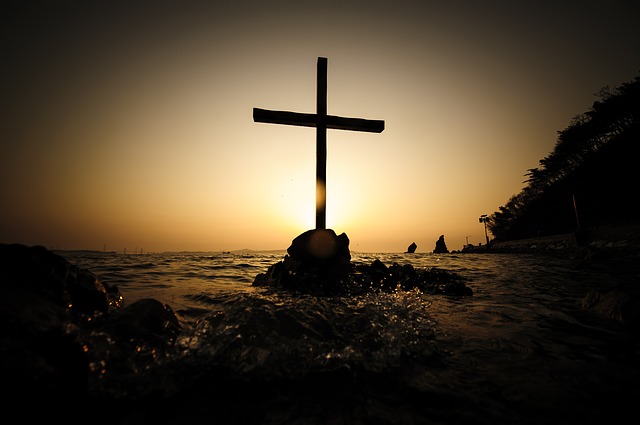
43 And after the meeting of the synagogue broke up, many Jews and devout converts to Judaism followed Paul and Barnabas, who, as they spoke with them, urged them to continue in the grace of God. – Acts 13:43
A Word of Encouragement
From time to time we are exposed to a new thought or idea that piques our curiosity. The taste on our mental palate leaves us craving for more so if opportunity avails we go back to the well for another drink. Such was the case at Antioch when Paul and Barnabas were asked to share a word of encouragement in the Synagogue.
After leaving Perga, Paul and Barnabas made their way to Antioch in Pisidia, and as was their custom went to the Synagogue on the Sabbath. After the reading from the Law and the Prophets, the rulers of the Synagogue asked Paul and Barnabas if they had any words of encouragement for the people. My guess is you would not have to pose that question twice to Paul! With Moses and one of the Prophets having been read from, the table was set for Paul to deliver the main course. Grace.
God’s Grace
Paul promptly stood, motioned with his hand, and commanded his audience to listen. Beginning with the Pentateuch, from which the rulers had just read, Paul began to paint a verbal picture of Grace. God chose our fathers. He made the people prosper in Egypt. With a mighty power, God led them out of Egypt and He endured their conduct for about forty years in the desert. God then overthrew seven nations in Canaan and gave their land to His people as their inheritance.
After this, God gave them judges until the time of Samuel the prophet. When the people asked for a king, God gave them Saul. After removing Saul, God gave them David as a king because he was a man after God’s own heart and would do everything God wanted him to do. And from his descendants, God brought forth the Savior Jesus as He had promised. Before the coming of Jesus, John the Baptist prepared the way with a baptism of repentance. So from the calling of Abraham to John the Baptist, the grace of God has been evident. But it hasn’t always been recognized.
Paul then reminded his audience that the message of salvation was sent to them, the children of Abraham and the God-fearing Gentiles!! However, the people of Jerusalem and their rulers did not recognize Jesus and they condemned Him. Thus fulfilling the words of the Prophets from whom they read every Sabbath. And although they had no legal grounds to warrant it, they asked Pilate to have Jesus executed. After the prophecies were fulfilled, they took Jesus down from the cross and laid Him in a tomb. But Grace cannot remain buried.
Our Hope
Men may have laid Jesus in a tomb, but God raised Him from the dead. For many days He was seen by those who had traveled with Him from Galilee to Jerusalem. They served as His witnesses. The words of the Psalms were fulfilled. The Son of God would never see decay. Instead, He is exalted. Death was the conquered not the conqueror. Grace lifts up the Son of God.
Paul now comes to his final stroke in the masterpiece of grace.
38 Let it be known to you therefore, brothers, that through this man forgiveness of sins is proclaimed to you, 39 and by him everyone who believes is freed from everything from which you could not be freed by the law of Moses.
40 Beware, therefore, lest what is said in the Prophets should come about:
41 “‘Look, you scoffers,
be astounded and perish;
for I am doing a work in your days,
a work that you will not believe, even if one tells it to you.’” – Acts 13:38-41
Needy Wretches
Although he never used the word grace in his message, Paul vividly depicted mans utter dependency upon God. While Paul continually pointed out what God has done on behalf of men, his depiction of men wasn’t so favorable. Although God was constantly giving, Paul tells us that men asked for a king. Although the message of salvation came to the children of Israel, their rulers did not recognize Jesus as Savior, but rather condemned Him. Then after having Jesus executed, men laid Him in a tomb. Not very flattering for men, but in His grace, God doesn’t give up on us.
Sabbath after Sabbath, the Jews and the God-fearing Greeks would meet at the Synagogue and hear a reading from the Pentateuch and the Prophets. Week after week they would come back with their thirst unquenched. Until Paul and Barnabas showed up and were asked if they had any words of encouragement, and introduced them to grace.
When the meeting commenced, some of the audience followed Paul and Barnabas. They wanted more water from Grace’s well. Knowing man’s pride and propensity to lean on his own works, Paul and Barnabas persuaded with the people to continue in the grace of God. We are saved and kept by grace. To continue in the grace of God is simply to continue in Jesus. As Paul warned the Galatians, our efforts can never add to the work of the cross.
The words of Paul and Barnabas will always be relevant. We must always remind ourselves that our salvation is by grace from start to finish. He who began a good work in us will be faithful to complete it without any assistance from our works or efforts. Forget idolizing works. Forget busying yourself with religious activities. Rather, show your appreciation for everything God has done for you in Christ and praise Him for His amazing grace. Grace that will lead us home.
Amazing Grace
Amazing grace! How sweet the sound
That saved a wretch like me!
I once was lost, but now am found;
Was blind, but now I see.
Through many dangers, toils and snares,
I have already come;
’Tis grace hath brought me safe thus far,
And grace will lead me home.
The Lord has promised good to me,
His Word my hope secures;
He will my Shield and Portion be,
As long as life endures.
Yea, when this flesh and heart shall fail,
And mortal life shall cease,
I shall possess, within the veil,
A life of joy and peace.
The earth shall soon dissolve like snow,
The sun forbear to shine;
But God, who called me here below,
Will be forever mine.
When we’ve been there ten thousand years,
Bright shining as the sun,
We’ve no less days to sing God’s praise
Than when we’d first begun.


 3 You shall march around the city, all the men of war going around the city once. Thus shall you do for six days.
3 You shall march around the city, all the men of war going around the city once. Thus shall you do for six days.




